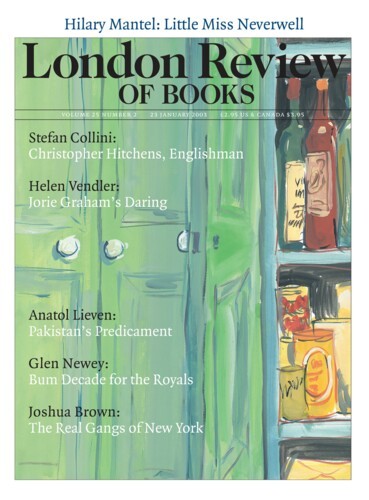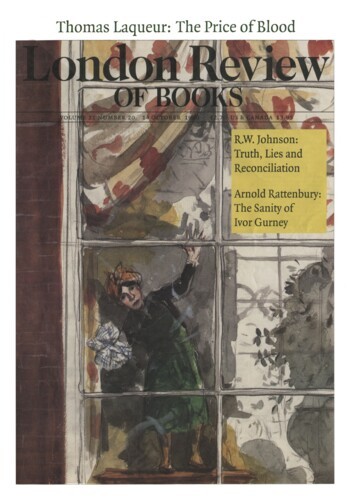Most loyal and protective of Gurney’s many friends, Marion Scott wrote after one of her regular visits to the asylum: ‘Ivor is so heart-breakingly sane in his insanity.’ Letters, reported conversation, music, poems all attest to the fact. He was trained and already admired as a composer before enlistment; in the trenches poetry had occupied him more and more and, when he returned afterwards to music, the poetry continued. The asylum cut him off, therefore, from what had been a life of continuous intellectual companionship – in music, poetry and trench-life. In the end, all reasoning had to be here, inside. Outside became for him one vastly simplified establishment of Church and Metropolitan Police, to which he would write long and, if you choose to see them so, quite dotty pleas, sometimes in verse, against his continuing incarceration. The world inside became increasingly the source of all creativity. Here he could chat happily with such companions as Beethoven about the music of Herbert Howells, his schoolboy friend and fellow music student; or could by turns become Schubert, Thoreau, Tolstoy, Traherne, Whitman, even Gurney – anyone, musician or author, whose work he understood to the point of loving. ‘The idea that he had written everything and composed everything persisted … But there were moments of real conversation and he spoke of real grievances,’ Adeline Vaughan Williams wrote after one of many visits with her husband, Gurney’s one-time teacher of composition, admirer and longstanding advocate. My own hunch is that other Gurney personae usually written off as lunatic fictions – Michael Flood, Frederick Saxby, Valentine Fane, Griffiths Davies and so on: there were many – may yet turn out to be comrades from the trenches, those other persons he so loved. Although writing of place-names rather than people, P.J. Kavanagh puts the matter exactly in the introduction to his wonderful Collected Poems of Ivor Gurney (1982): ‘Like most poets, he is dependent on the particular, and on being able to name it.’’‘
Most loyal and protective of Gurney’s many friends, Marion Scott wrote after one of her regular visits to the asylum: ‘Ivor is so heart-breakingly sane in his insanity.’...




